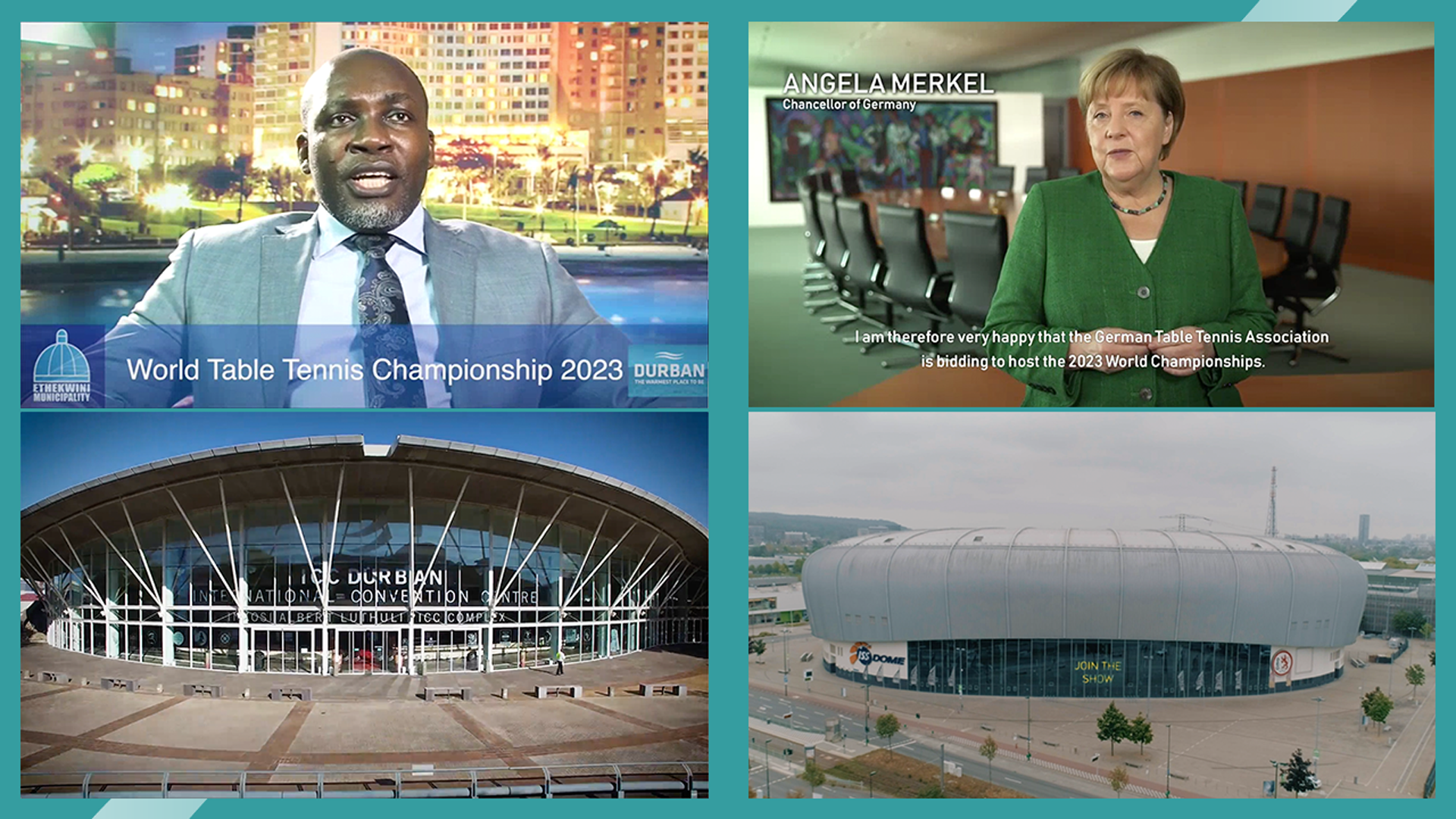"The world is a book," wrote theologian St. Augustine, "and those who do not travel read only one page." For the International Table Tennis Federation (ITTF), certain sections of the metaphorical book of the world are heavily underlined, annotated, thumb-smudged and dogeared, while others remain as crisp and fresh as the day they were printed. While the ITTF boasts of being the only worldwide governing body of a sport to include all 226 national associations as members, its major events generally fall within the "table tennis belt" that is Eurasia. You would have to set the DeLorean to 1939 to experience the only World Championship ever been held outside of Europe and Asia, 81 years ago in Cairo. This narrow distribution range is regrettable but understandable, as the ITTF has thus far struggled to convert the sport's massive global popularity into the massive profits seen in other major sports; therefore, it becomes a financial imperative to keep expensive events like World Championships and World Cups in regions where the sport is already proven a proven draw. To their credit, the ITTF has begun to think bigger. With the imminent launch of World Table Tennis (WTT), its new commercial arm, the ITTF is working to develop its brand in new markets. According to ITTF CEO Steve Dainton, "The end goal is to have offices set up in all key markets worldwide, helping to tighten WTT’s relationship with all regions of the world, ensuring that the sport continues to grow on a truly global level." Next year marks a major step in this direction, as Houston, Texas is set to host the 2021 World Championships. This long overdue maiden voyage to the Americas is orchestrated to celebrate the 50th anniversary of Ping-Pong Diplomacy, the last time the United States really had an interest in table tennis. Having homegrown heroes like Lily Zhang and Kanak Jha competing on a par with the very best in the world will certainly raise the sport's profile domestically. Now, attention turns to the next installment of the biennial bash. At Monday's Annual General Meeting of the ITTF, the board will vote on whether the 2023 World Championships will be held for the eighth time in Germany, or for the first time in South Africa. For the former, the advantages are innumerable. The city of Düsseldorf, which hosted the World Championships only three years ago, has the full support of everyone from German Chancellor Angela Merkel to a long list of world-class players already comfortable playing there. In a very slick presentation, Düsseldorf made the inarguable case that they are the best qualified to host the games because they have already done it successfully. Meanwhile, in South Africa, the city of Durban is rolling out the red carpet in the hopes of hosting the prestigious games for the first time. Concluding their presentation with the slogan, "It's time for Africa," a host of hopeful hosts argue that bringing the championships to the oft-overlooked continent will inspire a new generation of players in a vast new market. "I think ITTF has emerged victorious from the bidding process for the 2023 World Table Tennis Championships, seeing two strong bids and eye-catching presentations," commented ITTF Deputy President Khalil Al Mohannadi. "In my opinion, it reflects benefits of... allowing more flexibility, and bids, from different regions across the world." The ITTF now faces a tough decision between a proven winner in Düsseldorf and a gamble in Durban. While many may reflexively cling to the comfort of the familiar, this vote is a chance to prove their commitment to investing in the future of the sport, not just in Eurasia and the United States but throughout the largely unread book of the world. Incidentally, St. Augustine was born in Africa, in a province called Numidia in what is now Algeria. After traveling to Carthage, Rome and Milan, he died back in Numidia at 75. Only time will tell whether the ITTF World Championships return to Africa after an even longer time away.
More at ITTF
